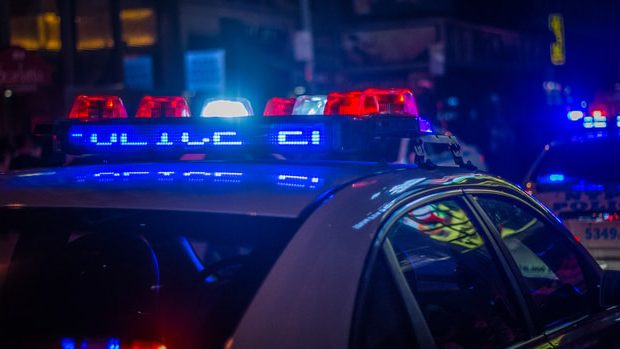A Clemson University researcher will lead a team of researchers that has been awarded more than $892,000 from the National Institute of Justice to evaluate a police de-escalation training program.
The program, Polis Solutions’ GIRing-In Hybrid Training Program, differentiates itself from other programs by its inclusion of both online and in-person delivery, its gauging of officer empathy and its focus on all police encounters, not exclusively those that end with the use of force.
Kyle McLean, assistant professor in the Clemson University Department of Sociology, Anthropology and Criminal Justice, has studied conflict de-escalation training programs since the rise in their popularity among police departments around 2015.

McLean said the program to be studied is immediately attractive because it can be delivered flexibly to police departments of all sizes and in all areas, which is vitally important considering many departments struggle to take officers out of the field to attend fully in-person programs. However, McLean said the possibility of gauging and even improving officer empathy through training may prove to be the most powerful aspect of the training.
“When evaluating a program such as this, just seeing an increase in methods to de-escalate a situation is important, but the possibility of making officers more empathetic in all types of encounters – not just use-of-force encounters – can really change the game,” McLean said. “That kind of evaluation can help separate an officer having a ‘bad day’ from a true red flag, and it can also aid in officer recruitment and mental health training.”
McLean said that, on average, police use or threaten to use force in only 1.7% of all contacts with citizens and roughly 20% of arrests. De-escalation training programs in the past have exclusively focused on use-of-force encounters, which he said ultimately limits how well a training program’s effectiveness can be evaluated.
McLean said this training evaluation will study whether or not an officer improved their social interaction and de-escalation skills across all encounters. This approach will allow police departments and the public to better hold officers and departments more accountable for the “ripple effect” that occurs with all citizens – not just the ones being arrested – when officers don’t take the proper steps to de-escalate a situation.
“Use of force is going to be unavoidable in some cases – that’s just reality – but utilizing de-escalation tactics may reduce the level of force necessary, impact citizen perceptions of the incident and fulfill the officer’s obligation to attempt alternatives to force whenever possible,” McLean said.
The research team will work with the Virginia Beach Police Department, which is located in the largest city in Virginia and one of the 50 largest cities in the country with a population of just under 450,000 people. McLean said the department has the resources to give the research team the access and material it needs, and the city’s diverse citizenry will ensure that results will be representative of what might be seen in other large U.S. cities.
The research team will start by examining nearly 600 hours of police body camera footage to systematically code use of de-escalation tactics in encounters. They will then randomly sample body camera footage from officers who have and have not participated in training to gauge how both groups differed in their approaches to encounters and how the “trajectories” of encounters changed when force was necessary.
While officers will be randomly assigned to the training during the study to create a robust evaluation design, officers who do not receive the de-escalation training during the evaluation will complete it when the research project has finished.
McLean said what is arguably the most ambitious aspect of the project is the included measure of how well officers are able to identify accurately the thoughts and emotions of those with whom they are interacting. McLean said an officer’s ability to empathize with a person in distress can make all the difference in shaping how an encounter progresses, so a training program that can measure this ability accurately can be potentially powerful for all involved.
“Measuring social interaction skills and specifically empathy will be challenging, especially in a police-to-citizen interaction,” McLean said, “but thorough and repeated tests in this regard should reveal just how effective an officer becomes in identifying with others.”
The research team will spend the first few months of the two-year project planning, piloting empathy tests, and coordinating the massive amount of body camera footage from the department. Officer training will occur in the second quarter of the project, and the team will spend the final half of the project analyzing the ensuing data.
Findings will be reported to the National Institute of Justice and submitted to multiple academic journals. McLean said the research team plans to attend and present at all major academic and practitioner conferences in the field of criminal justice.
According to Katherine Weisensee, chair of the Clemson Department of Sociology, Anthropology and Criminal Justice, the research further establishes McLean as an expert in the area of police de-escalation training. She said the work of leading scholars such as McLean has allowed a vital tool for police departments to evolve rapidly to meet the needs of criminal justice experts, police officers, and, most importantly, the citizens they serve.
“De-escalation training that was both accessible and effective may not have been readily available in the past, but it is clear that the need for it has become obvious,” Weisensee said. “I am proud that faculty in our department can help to show just how effective and available this type of training can be for one of the largest cities in the U.S. or the smallest rural area.”
The Department of Sociology, Anthropology and Criminal Justice is part of the University’s College of Behavioral, Social and Health Sciences (CBSHS). Established in July 2016, CBSHS is a 21st-century, land-grant college that combines work in seven disciplines – Communication; Nursing; Parks, Recreation and Tourism Management; Political Science; Psychology; Public Health Sciences; Sociology, Anthropology and Criminal Justice – to further its mission in “building people and communities” in South Carolina and beyond.
Get in touch and we will connect you with the author or another expert.
Or email us at news@clemson.edu

